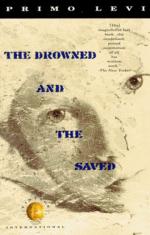|
This section contains 867 words (approx. 3 pages at 400 words per page) |

|
Shame
Paradoxically, shame and/or guilt—a vague anguish whose source cannot be pinpointed, afflicts the victims of the Lager rather than their tormentors, who tend to fabricate a "convenient reality" of invented memories as a substitute for the repugnant horrors in which they have participated. Alcohol and euphemisms are used during their service to ease their consciences. After the war, each telling of their story seems truer and is more readily believed. When guilt is suppressed by claiming "I don't remember," it is often a formulaic "fossilized lie." German civilians learn not to see, hoping that this spares them complicity.
The victims' memories also are filtered, but with no intention to deceive. They skim over painful episodes and dwell on moments of respite. Discomfort over re-acquired freedom is different for each, but all feel diminished by having lived at an animal level, having stolen, forgotten country, culture...
|
This section contains 867 words (approx. 3 pages at 400 words per page) |

|




